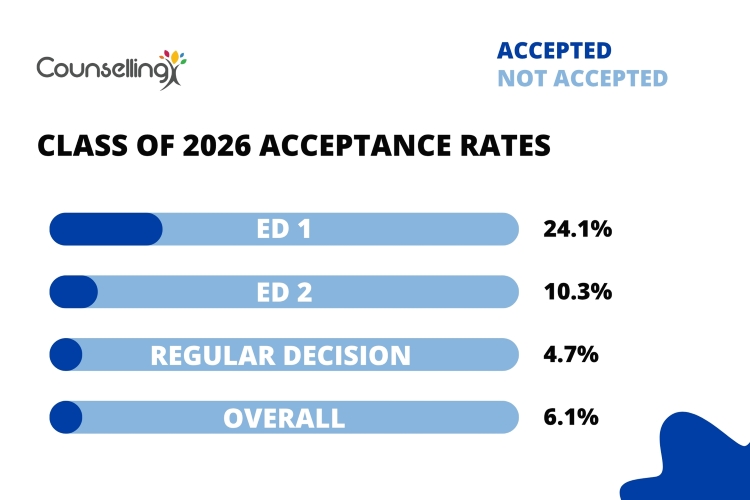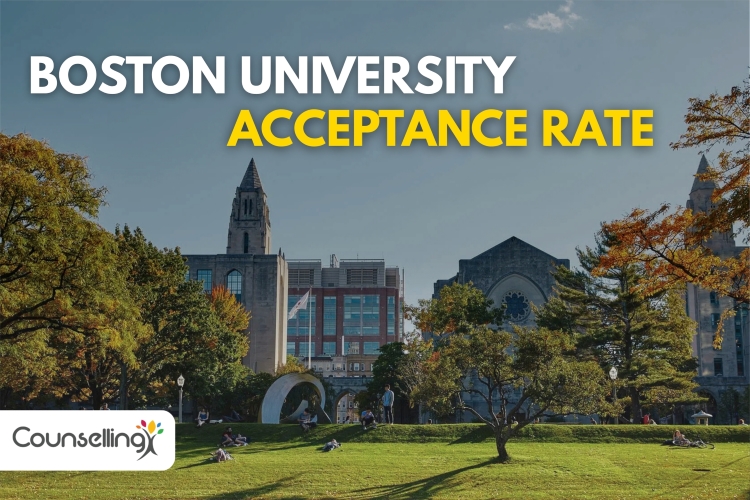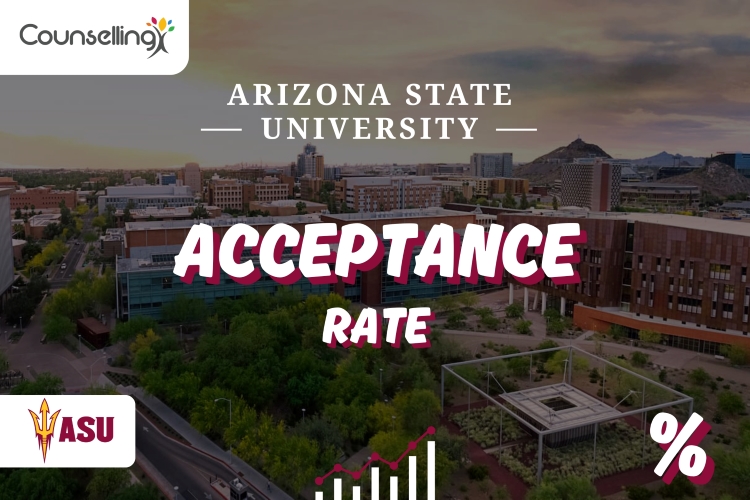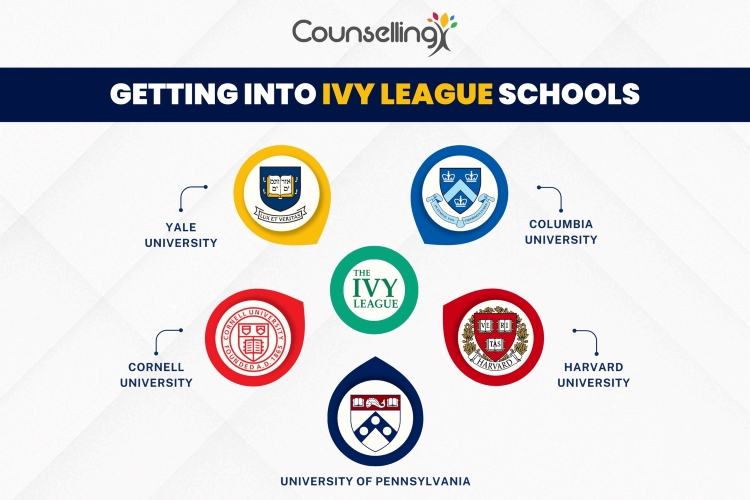The Netherlands is one of the most popular countries in Europe for international students. It is known for having some of the best universities in the world, a modern way of teaching, and a friendly atmosphere.
The Netherlands was one of the first countries in Europe to offer Bachelor's and Master's degrees in English. This means they have a large number of courses to choose from. There are many Bachelor's and Master's degrees available at about 70 higher education institutions.
The Netherlands also has a large number of international students. More than 112,000 students from different countries come to study here. About 16% of all students are from other countries, which is one of the highest percentages in Europe.
Like in other European countries, universities in the Netherlands are either "research universities," which focus more on research, or "universities of applied sciences," which focus more on practical study programmes.
Why Should You Go to Study in the Netherlands?
The Netherlands is an excellent choice for students looking to study abroad. Here are the top reasons why:
- Wide Range of English Programmes: Dutch universities offer the largest selection of English-taught programmes in continental Europe, with around 2,000 to choose from. This makes it convenient for international students to study in English while enjoying the cultural diversity of the Netherlands.
- Good Value for Your Money: The quality of higher education in the Netherlands is highly regarded worldwide, yet tuition fees and living costs are lower compared to English-speaking countries. There are also numerous scholarship opportunities available to help ease financial burdens.
- Big International Community: The Netherlands hosts a vibrant international student community from over 160 countries. Dutch society is inclusive and connected globally, offering ample opportunities for cultural exchange and networking.
- Great Place to Live: Renowned for its safety and happiness, the Netherlands ranks among the safest and happiest countries globally. Its rich history is reflected in picturesque cities and the highest density of museums worldwide. Moreover, its central location in Europe allows for easy travel to major cities like Paris, London, and Berlin.
- Excellent Career Opportunities: As the 18th largest economy globally, the Netherlands boasts thriving industries and multinational companies such as Philips, Heineken, and Shell. It excels in fields like agriculture, water management, art & design, logistics, and sustainable energy, offering promising career prospects for graduates.
Everything You Need to Go to the Netherlands

1. Tuition Fees and Education Costs
Higher education in the Netherlands is not free, but it is subsidised by the Dutch government. This makes it affordable for Dutch students and accessible for international students.
2. Bank Accounts for Students
To make life easier in the Netherlands, it is recommended to open a Dutch bank account. Many banks, including ABN AMRO, offer student bank accounts specifically for international students.
3. Scholarships for International Students
There are many scholarships available for international students, including the Holland Scholarship and the Erasmus programme.
4. Academic Calendar
The academic year for Dutch universities starts in September and ends in June of the following year. It is divided into two semesters, with the second starting in early February. There is also a two-week break over Christmas and New Year.
5. Dutch Degrees and Qualifications
The Dutch system is similar to the European study system. The degrees available are:
- Bachelor's degrees
- Master's degrees
- PhDs
- Postdoctoral research
6. Dutch Credit System (ECTS)
The study workload in the Netherlands is measured in ECTS (European Credit Transfer and Accumulation System) credits.
Student workload includes lectures, seminars, assignments, laboratory work, independent study, and exams.
ECTS credits are used to compare and evaluate universities, programmes, courses, modules, dissertations, and students' qualifications.
Furthermore, credits are awarded after completing a course or programme.
7. University Grading System
The Dutch grading system ranges from 1 (very poor) to 10 (outstanding). A 5.5 is the passing minimum. Marks from 1 to 3 and 9 to 10 are rarely given. Desired grades depend on the programme. For example, an average of 7.5 may be sufficient for a Master's but not for a PhD.
8. Entry Requirements for Universities
First, contact the international office of the university to check if your degree is recognised in the Netherlands. If your degree is recognised, you may need:
- Residence Permit: If you are not an EU/EEA or Swiss citizen.
- English Proficiency: TOEFL (minimum 550 paper-based, 213 computer-based), IELTS (minimum average of 6), GMAT, or GRE.
- Average Grades: A minimum average of 7 - 7.5 (foreign diploma).
- Acceptance: Be accepted by the university. You may be asked to take admission tests if you are not fully qualified.
- Dutch Proficiency: If studying in Dutch, you need a good command of the language. Many universities offer Dutch as a second language courses.
Please note that required average scores vary by university and major. Some programmes have more applicants than available places, leading to a selection procedure.
Top Universities in the Netherlands
|
Highest Ranking Universities in the Netherlands |
|||
|
University Name |
Times Higher Education (National Ranking) |
Times Higher Education (Global Ranking) |
U.S. News (Global Ranking) |
|
Delft University of Technology |
1 |
48 |
187 |
|
University of Amsterdam |
2 |
61 |
33 |
|
Wageningen University & Research |
3 |
=64 |
113 |
|
Leiden University |
4 |
77 |
56 |
|
University of Groningen |
5 |
79 |
76 |
|
Erasmus University Rotterdam |
6 |
=99 |
70 |
|
Vrije Universiteit Amsterdam |
7 |
125 |
78 |
|
Maastricht University |
8 |
=138 |
179 |
|
Radboud University Nijmegen |
9 |
=140 |
117 |
|
Eindhoven University of Technology |
10 |
=168 |
374 |
1. Delft University of Technology
Delft University of Technology, also known as TU Delft, has a long history that traces back to 1842 when it was established by King Willem II of the Netherlands as the Royal Academy. It attained university status in 1986 and stands today as the oldest and largest technical university in the Netherlands.
Home to approximately 16,000 students, including a diverse international community, TU Delft is structured into eight faculties. It offers a variety of undergraduate and postgraduate programmes across disciplines such as design, engineering, and science. While most bachelor's programmes are conducted in Dutch, all master's programmes are delivered in English.
At TU Delft, there is a strong emphasis on fostering a forward-thinking environment with an international perspective. The university prioritises teamwork and problem-solving skills, preparing students for careers in technology and innovation.
The university collaborates closely with industry, governments, and universities worldwide, providing students access to state-of-the-art facilities and opportunities for internships and research projects. For instance, students have developed projects like a solar-powered car and a robotic dragonfly.
Beyond academics, TU Delft offers a rich campus life with over 140 sports and cultural activities through its Sports and Culture Centre. Each degree programme has its own student association, facilitating study trips and social events.
TU Delft has a global alumni network of over 50,000 members and maintains connections with three Nobel Laureates in chemistry and physics. Located in Delft, a historic city nestled between Rotterdam and The Hague, the university enjoys a scenic setting with canals and a medieval centre steeped in cultural heritage.
|
Delft University of Technology |
||||
|
General Information |
||||
|
Acceptance Rate (%) |
Total Students |
International Students |
Student per Staff |
Female to Male Ratio |
|
60% |
21,262 |
30% |
15.9 |
31:69 |
|
Delft University of Technology |
|||||
|
High Ranking Courses |
|||||
|
Course Name |
Water Resources |
Civil Engineering |
Engineering |
Green and Sustainable Science and Technology |
Arts and Humanities |
|
Subject Ranking |
7 |
32 |
37 |
48 |
60 |
|
Delft University of Technology |
|||||
|
Academic Criteria |
|||||
|
IB (International Baccalaureate) |
GPA |
Percentage |
GRE |
IELTS |
TOEFL |
|
36 |
3.2 |
80% |
315 |
7.0 |
100 |
2. University of Amsterdam
The University of Amsterdam (UvA) offers a diverse array of over 200 degree programmes taught in English, making it one of Europe's leading institutions for international education. Established in 1632 with the Athenaeum Illustre, it has evolved into a modern, research-focused university situated in the bustling capital of the Netherlands.
Located in Amsterdam, a city renowned for its vibrant cultural scene and dynamic business environment, the UvA provides an ideal setting for academic pursuits. Amsterdam consistently ranks high in global quality of living surveys, reflecting its appeal as a safe and enriching place to live and study.
The UvA stands out in global rankings, placing among the top universities in Europe and the world. Accredited by both the Dutch government and the NVAO (Accreditation Organisation of the Netherlands and Flanders), it is a member of prestigious networks like the League of European Research Universities (LERU) and Universitas 21.
With a student body of 43,000, including over 14,000 international students from more than 100 countries, the UvA fosters a diverse and inclusive learning environment. This multicultural atmosphere enriches students' experiences, offering opportunities to build global perspectives and expand international networks.
Whether you're interested in pursuing a bachelor’s degree or a master’s programme, the University of Amsterdam provides a broad spectrum of academic disciplines to choose from. Its commitment to research excellence and innovative teaching methods prepares students to tackle complex global challenges and contribute to society's advancement.
|
University of Amsterdam |
||||
|
General Information |
||||
|
Acceptance Rate (%) |
Total Students |
International Students |
Student per Staff |
Female to Male Ratio |
|
4% |
28,649 |
36% |
13.2 |
60:40 |
|
University of Amsterdam |
|||||
|
High Ranking Courses |
|||||
|
Course Name |
Surgery |
Arts and Humanities |
Gastroenterology and Hepatology |
Psychiatry/Psychology |
Social Sciences and Public Health |
|
Subject Ranking |
3 |
8 |
9 |
14 |
17 |
|
University of Amsterdam |
|||||
|
Academic Criteria |
|||||
|
IB (International Baccalaureate) |
GPA |
GRE |
GMAT |
IELTS |
TOEFL |
|
32 |
3.2 |
320 |
650 |
7.0 |
100 |
3. Wageningen University & Research
Wageningen University & Research is unique in the Netherlands for its focus on healthy food and the environment. Established in 1876 as a national agricultural college, it has grown into a globally respected institution known for its expertise in life sciences.
The university is consistently ranked among the top in the world, particularly in life sciences. Its mission is to use nature's potential to enhance the quality of life, a theme shared across its 20 bachelor programmes. These programmes cover diverse fields such as agrotechnology, molecular life sciences, and international land management.
Wageningen University & Research offers six programmes taught in English, reflecting its international outlook. It collaborates closely with the Dutch government, businesses, and non-profits to conduct research aimed at sustainable solutions and healthy living. Projects range from developing renewable energy innovations to creating biodegradable plastics from seaweed.
In 2015, the university achieved carbon neutrality, aligning with its commitment to a healthy natural environment. Located in the historic town of Wageningen on the banks of the Rhine, the university adds to the town's significance, known for hosting an annual festival celebrating the Netherlands' liberation at the end of World War II.
|
Wageningen University & Research |
||||
|
General Information |
||||
|
Acceptance Rate (%) |
Total Students |
International Students |
Student per Staff |
Female to Male Ratio |
|
22% |
15,899 |
28% |
18.1 |
54:46 |
|
Wageningen University & Research |
|||||
|
High Ranking Courses |
|||||
|
Course Name |
Plant and Animal Science |
Ecology |
Agricultural Sciences |
Environment/Ecology |
Food Science and Technology |
|
Subject Ranking |
1 |
3 |
3 |
5 |
9 |
|
Wageningen University & Research |
|||||
|
Academic Criteria |
|||||
|
IB (International Baccalaureate) |
GPA |
Percentage |
GRE |
IELTS |
TOEFL |
|
33 |
3 |
75% |
340 |
6.5 |
92 |
4. Leiden University
Leiden University, founded in 1575 by William of Orange, is the oldest university in the Netherlands. It has a long history of nearly 450 years of tradition and innovation. The university is ranked among the top 100 in the world and is located in two vibrant student cities: Leiden and The Hague. It is a founding member of the League of European Research Universities.
Leiden University has a solid reputation. Notable alumni include members of the Dutch royal family, such as King Willem Alexander, Princess Beatrix van Oranje-Nassau, and His Royal Highness Constantijn van Oranje-Nassau. Other famous alumni are former NATO Secretary General Jaap de Hoop Scheffer and Dutch Prime Minister Mark Rutte. Even Winston Churchill received an honorary degree from Leiden University.
The university stands for freedom and its motto, "Praesidium Libertatis," means "bastion of freedom." This dates back to its founding when the city of Leiden resisted Spanish invaders. Today, the university promotes inclusiveness and diversity. It has seven faculties in the arts, sciences, and social sciences, and is home to students from over 120 different countries. The university describes itself as a place where any question can be asked and answered freely.
Leiden University has grown around the city over the centuries, making Leiden a vibrant student city. It also has a second location in The Hague, known as the International City of Peace and Justice. This campus hosts Leiden University College, the Faculty of Governance and Global Affairs, and several programmes from other faculties.
Leiden University is associated with 16 Nobel Prize winners and 23 Spinoza Prize winners, the highest awards in Dutch science. Albert Einstein was once a visiting professor here. The university is closely linked with the Leiden Bio Science Park, a prestigious life sciences cluster in the Netherlands and one of the most successful science parks in Europe. Leiden's high rankings in science are due to the freedom it gives its scientists to pursue excellence.
Leiden University focuses its research on five main areas: Life Sciences; Law, Politics and Administration; Languages, Cultures and Societies; Health and Wellbeing; and Fundamentals of Science and Artificial Intelligence. The university aims to maintain its leading position in many fields, including natural sciences, life sciences, medicine, social sciences, international law, astronomy, and non-Western languages. Its programmes meet international standards, preparing graduates for further studies or careers globally.
The university offers a broad range of programmes: 16 English-taught and 40 Dutch-taught bachelor's programmes, 78 English-taught master's programmes with almost 200 specialisations, diverse PhD tracks, and various interdisciplinary minors. The Honours Academy offers an Honours College, the Leiden Leadership Programme, and the Leiden University College in The Hague for excellent students. Teaching at Leiden focuses on individual learning and small group work, ensuring personal supervision and support from international lecturers and professors.
|
Leiden University |
||||
|
General Information |
||||
|
Acceptance Rate (%) |
Total Students |
International Students |
Student per Staff |
Female to Male Ratio |
|
63% |
35,072 |
21% |
19.3 |
60:40 |
|
Leiden University |
|||||
|
High Ranking Courses |
|||||
|
Course Name |
Space Science |
Radiology, Nuclear Medicine and Medical Imaging |
Cardiac and Cardiovascular Systems |
Arts and Humanities |
Surgery |
|
Subject Ranking |
6 |
11 |
29 |
32 |
37 |
|
Leiden University |
|||||
|
Academic Criteria |
|||||
|
IB (International Baccalaureate) |
GPA |
Percentage |
GMAT |
IELTS |
TOEFL |
|
36 |
3.2 |
80% |
590 |
6.5 |
87 |
5. University of Groningen
The University of Groningen (UG) was founded in 1614. It has a long tradition of education, innovation, and research. The university is consistently ranked among the top 100 universities in the world. It has one of the largest international student communities in the Netherlands.
Of the 36,420 students, over 9,000 are international, coming from 127 different countries. The university has campuses in Groningen and Leeuwarden, both located in the north of the Netherlands.
The University of Groningen offers over 180 English-taught bachelor's and master's degree programmes. Students receive high-quality supervision and a well-rounded education. There are many opportunities, including electives, minor programmes, exchange possibilities, and joining the Honours College.
Ten of the university's bachelor's degree programmes have been awarded the ‘Top Degree Programme’ quality label by the Dutch Higher Education Guide for Universities in 2022. The Global Responsibility and Leadership programme at Campus Fryslȃn is rated as the best bachelor’s programme in the Netherlands.
The university is known for its high-quality research. It is among the top European institutes in academic research. The university applies academic research in innovative ways to solve social and individual problems.
Researchers collaborate with partners from all over the world, and professors involve their students in research. Professor Ben Feringa, from the Faculty of Science and Engineering, won the Nobel Prize in Chemistry five years ago.
A quarter of the student community at the university is international, with 9,000 students representing 127 nationalities. This diversity grows every year, offering an international experience. Students can also study abroad through the university’s many exchange partnerships.
Several master’s degree programmes are in cooperation with other European universities, allowing students to study part of their degree abroad. The Dutch are among the best non-native English speakers in the world, so the language barrier is not a problem. Students can also take free Dutch classes provided by the university.
The University of Groningen has a distinguished reputation for over 405 years. People who have studied or worked at the university include the first president of the European Bank, the first female university student, the first female lecturer in the Netherlands, the first Dutch astronaut, and four Nobel Prize winners.
Groningen is a fantastic student city with the youngest population in the Netherlands. A quarter of the inhabitants are students. Students can be seen studying in cafés or the library, biking to class, hanging out with friends, working part-time jobs, or enjoying the vibrant nightlife.
The university also has a smaller campus in Leeuwarden, 35 minutes away from Groningen by train. Leeuwarden is the home of the university’s youngest faculty, Campus Fryslân. In recent years, the city has held the titles of UNESCO City of Literature and European Capital of Culture. Both Groningen and Leeuwarden are safe and eco-friendly places to live and rank among the happiest cities in Europe.
|
University of Groningen |
||||
|
General Information |
||||
|
Acceptance Rate (%) |
Total Students |
International Students |
Student per Staff |
Female to Male Ratio |
|
50% |
31,942 |
29% |
28.8 |
53:47 |
|
University of Groningen |
|||||
|
High Ranking Courses |
|||||
|
Course Name |
Cardiac and Cardiovascular Systems |
Psychiatry/Psychology |
Space Science |
Radiology, Nuclear Medicine and Medical Imaging |
Education and Educational Research |
|
Subject Ranking |
11 |
28 |
28 |
29 |
32 |
|
University of Groningen |
|||||
|
Academic Criteria |
|||||
|
IB (International Baccalaureate) |
GPA |
GRE |
GMAT |
IELTS |
TOEFL |
|
40 |
3.5 |
Required |
Required |
7.0 |
90 |
6. Erasmus University Rotterdam
Erasmus University Rotterdam (EUR) has been home to hard-working and entrepreneurial students since 1913. It is an international research university with more than 100 years of experience. EUR helps bachelor, master, and PhD students pursue their goals in wealth, health, governance, and culture.
EUR is known for its practical approach, entrepreneurial atmosphere, and a "make it happen" mentality. It serves to help its 39,000 students and researchers achieve their goals. The university maintains an excellent reputation and is consistently ranked in the top 2% of the world's best universities.
One of the reasons EUR is popular is because of its reasonable tuition fees. Dutch higher education offers great value due to the Dutch government's commitment to educational accessibility. Most EUR programmes cost around €2,200 for European students, and only a bit more for students from other parts of the world.
The main campus, Woudestein, is modern and safe. It has excellent study areas, a renovated library, and many places to eat. Students can also get active in the sports centre or join various social and academic clubs.
Even if you cannot visit the EUR campus in person, you can experience it virtually. You can explore campus, housing, classes, the city, and career testimonials from current students and alumni online.
Rotterdam, the second biggest city in the Netherlands, is known for its experimental architecture. Its large port, many multinational companies, and diverse cultures provide a living laboratory for researchers and a rich student life.
EUR offers many international bachelor and master programmes. All bachelor programmes, except double degrees, are three years long and lead to a Bachelor of Science (BSc) or Bachelor of Arts (BA).
Most students continue directly to one of the 50+ international master programmes, which usually take one year and result in a Master of Science (MSc), Master of Arts (MA), or Master of Laws (LLM) degree. If you plan to earn a PhD, you can choose a two-year master's research programme. EUR offers hundreds of PhD opportunities.
EUR's faculties and institutes include:
- Rotterdam School of Management
- Erasmus School of Economics
- Erasmus School of History, Culture and Communication
- Erasmus School of Health Policy & Management
- Erasmus School of Social and Behavioural Sciences
- Faculty of Philosophy
- Erasmus School of Law
- Erasmus Medical Centre
- Institute for Housing and Urban Development Studies
- International Institute of Social Studies
- Erasmus University College
|
Erasmus University Rotterdam |
||||
|
General Information |
||||
|
Acceptance Rate (%) |
Total Students |
International Students |
Student per Staff |
Female to Male Ratio |
|
53% |
33,874 |
25% |
36.0 |
54:46 |
|
Erasmus University Rotterdam |
|||||
|
High Ranking Courses |
|||||
|
Course Name |
Surgery |
Economics and Business |
Microbiology |
Infectious Diseases |
Gastroenterology and Hepatology |
|
Subject Ranking |
5 |
10 |
20 |
25 |
28 |
|
Erasmus University Rotterdam |
|||||
|
Academic Criteria |
|||||
|
IB (International Baccalaureate) |
GPA |
Percentage |
GMAT |
IELTS |
TOEFL |
|
30 |
3 |
60% |
600 |
7.0 |
100 |
7. Vrije Universiteit Amsterdam
Vrije Universiteit Amsterdam (VU Amsterdam) has always focused on scientific and value-driven education, research, and knowledge transfer. The university encourages free thinking and aims to build a better world for people and the planet. It is a university that focuses on society.
VU Amsterdam has about 30,000 students and a diverse international community. The university has nine faculties, offering a wide range of study programmes. These faculties cover subjects like humanities, social sciences, law, economics, business, and natural sciences.
The university is known for its research and has many successful alumni. These alumni include notable scientists, business leaders, and public figures who have contributed to various fields. VU Amsterdam values collaboration and works with other institutions and organisations to address societal challenges.
The campus is modern and well-equipped, providing students with excellent facilities for study and research. The university also offers many opportunities for extracurricular activities, allowing students to develop both academically and personally.
|
Vrije Universiteit Amsterdam |
||||
|
General Information |
||||
|
Acceptance Rate (%) |
Total Students |
International Students |
Student per Staff |
Female to Male Ratio |
|
45% |
31,704 |
18% |
19.2 |
57:43 |
|
Vrije Universiteit Amsterdam |
|||||
|
High Ranking Courses |
|||||
|
Course Name |
Psychiatry/Psychology |
Surgery |
Meteorology and Atmospheric Sciences |
Neuroscience and Behavior |
Radiology, Nuclear Medicine and Medical Imaging |
|
Subject Ranking |
13 |
13 |
14 |
22 |
30 |
|
Vrije Universiteit Amsterdam |
|||||
|
Academic Criteria |
|||||
|
IB (International Baccalaureate) |
GPA |
Percentage |
GMAT |
IELTS |
TOEFL |
|
33 |
3 |
75% |
Only for some programmes |
6.5 |
92 |
8. Maastricht University
Maastricht University (UM) is known for its unique Problem-Based Learning system and international focus. The university's "international classroom" brings together students from all over the world with different backgrounds and perspectives.
These differences make the learning experience at UM special. The university provides a challenging learning environment with small, interactive group sessions. This helps students get to know each other and work together, improving their learning results.
The main mission of education at UM is to support both the academic and professional development of students. Teaching and learning focus on both academic and personal growth. Education at UM is based on four pillars: Problem-Based Learning (PBL), small-scale education, international orientation, and societal relevance.
Maastricht University offers 25 bachelor programmes in fields such as Arts and Social Sciences, Economics and Business, Health and Life Sciences, Law, Liberal Arts and Sciences, and Science and Engineering.
For those interested in advanced studies, UM offers more than 60 master's programmes in areas like Accounting, Business and Economics, Globalisation and Development, Media, Technology and Innovation, Education, Arts and Culture, Health and Life Sciences, Science and Engineering, Psychology, Politics and Governance, Behavioural Sciences, Entrepreneurship, and Law.
The university is divided into several faculties and schools: the Faculty of Health, Medicine and Life Sciences; the Faculty of Psychology and Neuroscience; the Faculty of Science and Engineering; the Faculty of Law; the Faculty of Arts and Social Sciences; and the School of Business and Economics.
In summary, Maastricht University is a respected institution that offers a wide range of programmes and focuses on the overall development of its students in a diverse and interactive learning environment.
|
Maastricht University |
||||
|
General Information |
||||
|
Acceptance Rate (%) |
Total Students |
International Students |
Student per Staff |
Female to Male Ratio |
|
52% |
21.337 |
57% |
19.6 |
60:40 |
|
Maastricht University |
|||||
|
High Ranking Courses |
|||||
|
Course Name |
Radiology, Nuclear Medicine and Medical Imaging |
Surgery |
Cardiac and Cardiovascular Systems |
Psychiatry/Psychology |
Neuroscience and Behavior |
|
Subject Ranking |
16 |
28 |
37 |
49 |
55 |
|
Maastricht University |
|||||
|
Academic Criteria |
|||||
|
IB (International Baccalaureate) |
GPA |
Percentage |
GMAT |
IELTS |
TOEFL |
|
36 |
3.2 |
86% |
650 |
6.5 |
90 |
9. Radboud University Nijmegen
Radboud University is an international university located in Nijmegen, the Netherlands. It was founded in 1923 and has a strong tradition of providing high-quality education and research. The university is ranked in the top 1% worldwide. At Radboud, leading academics and excellent professors help students with everything they need.
Radboud University has about 22,000 students and offers a wide range of programmes. There are seven faculties: Arts, Law, Medical Sciences, Philosophy, Theology and Religious Studies, Science, Social Sciences, and the Nijmegen School of Management. These faculties cover many subjects and provide students with a variety of learning opportunities.
The university also has a strong network of alumni, which includes many successful professionals in different fields. Radboud's alumni community is active and provides support and opportunities for current students and graduates.
All in all, Radboud University is a well-respected institution with a rich history and a strong focus on high-quality education and research. With a wide range of programmes and a supportive academic environment, it offers students a great place to study and grow.
|
Radboud University Nijmegen |
||||
|
General Information |
||||
|
Acceptance Rate (%) |
Total Students |
International Students |
Student per Staff |
Female to Male Ratio |
|
53% |
23,004 |
12% |
18.2 |
57:43 |
|
Radboud University Nijmegen |
|||||
|
High Ranking Courses |
|||||
|
Course Name |
Radiology, Nuclear Medicine and Medical Imaging |
Space Science |
Surgery |
Infectious Diseases |
Ecology |
|
Subject Ranking |
3 |
41 |
44 |
48 |
54 |
|
Radboud University Nijmegen |
|||||
|
Academic Criteria |
|||||
|
IB (International Baccalaureate) |
GPA |
GRE |
GMAT |
IELTS |
TOEFL |
|
33 |
3.0 |
310 |
600 |
6.0 |
80 |
10. Eindhoven University of Technology
Eindhoven University of Technology, known as TUE, is located in the high-tech industrial area of the Netherlands. The university was founded in 1956 to provide skilled graduates for Philips, a well-known electronics company.
Today, TUE still has strong links with Philips and other companies in the "Brainport" area, which is like the Dutch version of Silicon Valley. This area is home to many important companies, such as ASML, NXP, DAF Trucks, and DSM.
TUE has around 5,000 undergraduate students, 3,200 master’s students, and 1,200 doctoral candidates. The university offers courses in English and Dutch, with Dutch classes available for beginners.
TUE has several departments, including the Intelligent Lighting Institute, the Data Science Center Eindhoven, the Institute for Complex Molecular Systems, and the Materials Technology group. These departments work closely with industry partners.
The university is known for its research in automotive systems, telecommunication technologies, information systems, nano-engineering, and smart mobility. It has a strong focus on energy, health, and smart mobility.
TUE is also famous for its work in robotics and data science. The university's soccer robots have won the RoboCup world title three times, and TUE students created the world’s first "drone" café in 2016.
The campus is located in Eindhoven and has a modern library with nearly 1,000 study seats, each with wireless internet access. Sports are important at TUE, with 70 different sports available through student-run societies, including mountain climbing, taekwondo, windsurfing, and snowboarding.
TUE has many notable alumni who have contributed to various fields. The university continues to be a key player in driving the Dutch knowledge economy and fostering innovation.
|
Eindhoven University of Technology |
||||
|
General Information |
||||
|
Acceptance Rate (%) |
Total Students |
International Students |
Student per Staff |
Female to Male Ratio |
|
50% |
10,611 |
27% |
21.4 |
28:72 |
|
Eindhoven University of Technology |
|||||
|
High Ranking Courses |
|||||
|
Course Name |
Chemistry |
Civil Engineering |
Radiology, Nuclear Medicine and Medical Imaging |
Energy and Fuels |
Material Science |
|
Subject Ranking |
109 |
113 |
113 |
118 |
121 |
|
Eindhoven University of Technology |
|||||
|
Academic Criteria |
|||||
|
IB (International Baccalaureate) |
GPA |
GRE |
GMAT |
IELTS |
TOEFL |
|
33 |
3.0 |
Not required |
Not required |
6.5 |
90 |
Go to the Netherlands with CounsellingX
The Netherlands, also known as Holland, has been a popular country for students who want a top-quality education. Universities in Holland offer more Bachelor’s and Master’s degrees in English than any other country in continental Europe. This means you can study any subject you like in the Netherlands. Tuition fees are reasonable for students from the EU/EEA and similar to those in the UK for students from outside Europe.
Studying in the Netherlands offers a wide range of courses, a welcoming environment, and an excellent education system. It is a great choice for students from all over the world.
Your dream to study in the Netherlands can be more than a dream. You can make it your reality by signing up to CounsellingX today. By signing up, you will have access to more than 500 counsellors from around the world and inside information about admission processes. Take your chance and enjoy a free consultation with a counsellor of your choice. About time you live your dreams!
Key Takeaways
- Delft University of Technology (TU Delft)
- Established: 1842
- Student Population: About 16,000
- Special Features: Known for innovation, teamwork, and projects like the solar-powered car. Offers 140+ sports and cultural activities. Collaborates globally.
- Programmes: Bachelor's, Master's, and PhD programmes, primarily in engineering and technology.
- University of Amsterdam (UvA)
- Established: 1632
- Location: Amsterdam
- Special Features: Located in a vibrant cultural hub. Known for international education.
- Programmes: Over 200 English-taught degree programmes.
- Eindhoven University of Technology (TU Eindhoven)
- Established: 1956
- Special Features: Focuses on engineering, technology, and applied sciences. Known for its strong ties with industry.
- Programmes: Bachelor's, Master's, and PhD programmes.
- Wageningen University
- Established: 1636
- Location: Wageningen
- Special Features: One of the oldest universities in the Netherlands. Renowned for research and high-quality education.
- Programmes: Wide range of disciplines at Bachelor's, Master's, and PhD levels.
- Leiden University
- Established: 1575
- Location: Leiden and The Hague
- Special Features: Oldest university in the Netherlands. Strong emphasis on humanities and social sciences.
- Programmes: Diverse programmes in arts, sciences, and social sciences.
- Wageningen University & Research
- Established: 1918
- Location: Wageningen
- Special Features: Specialises in life sciences and natural resources. Known for its research in agriculture, environment, and health.
- Programmes: Bachelor's, Master's, and PhD programmes.
- Erasmus University Rotterdam
- Established: 1913
- Location: Rotterdam
- Special Features: Known for business, economics, and medical programmes. Strong emphasis on research.
- Programmes: Wide range of Bachelor's, Master's, and PhD programmes.
- University of Groningen
- Established: 1614
- Location: Groningen
- Special Features: One of the oldest and largest universities. Known for research and internationalisation.
- Programmes: Extensive range of Bachelor's, Master's, and PhD programmes.
- Maastricht University
- Established: 1976
- Location: Maastricht
- Special Features: Known for problem-based learning and international orientation. Strong emphasis on research.
- Programmes: Bachelor's, Master's, and PhD programmes across various disciplines.
- Vrije Universiteit Amsterdam (VU Amsterdam)
- Established: 1880
- Location: Amsterdam
- Special Features: Emphasises interdisciplinary research and education. Known for a diverse and inclusive campus.
- Programmes: Wide range of Bachelor's, Master's, and PhD programmes.
- General Admission Requirements for Universities in the Netherlands
- Bachelor’s Programmes:
- High School Diploma: Equivalent to the Dutch VWO diploma.
- Language Proficiency: Proof of English proficiency (IELTS or TOEFL) or Dutch proficiency for Dutch-taught programmes.
- Specific Subjects: Some programmes may require specific subjects (e.g., Mathematics for engineering).
- Master’s Programmes:
- Bachelor’s Degree: Relevant field of study from a recognised university.
- Language Proficiency: Proof of English proficiency (IELTS or TOEFL).
- Additional Documents: May include a statement of purpose, letters of recommendation, CV, and sometimes a portfolio or interview.
- General Requirements:
- Residence Permit: Non-EU/EEA or Swiss students need a residence permit.
- Application Deadlines: Vary by programme and university; usually several months before the start date.
- Additional Requirements: Some programmes may have entrance exams or specific grade requirements.
- Bachelor’s Programmes:











